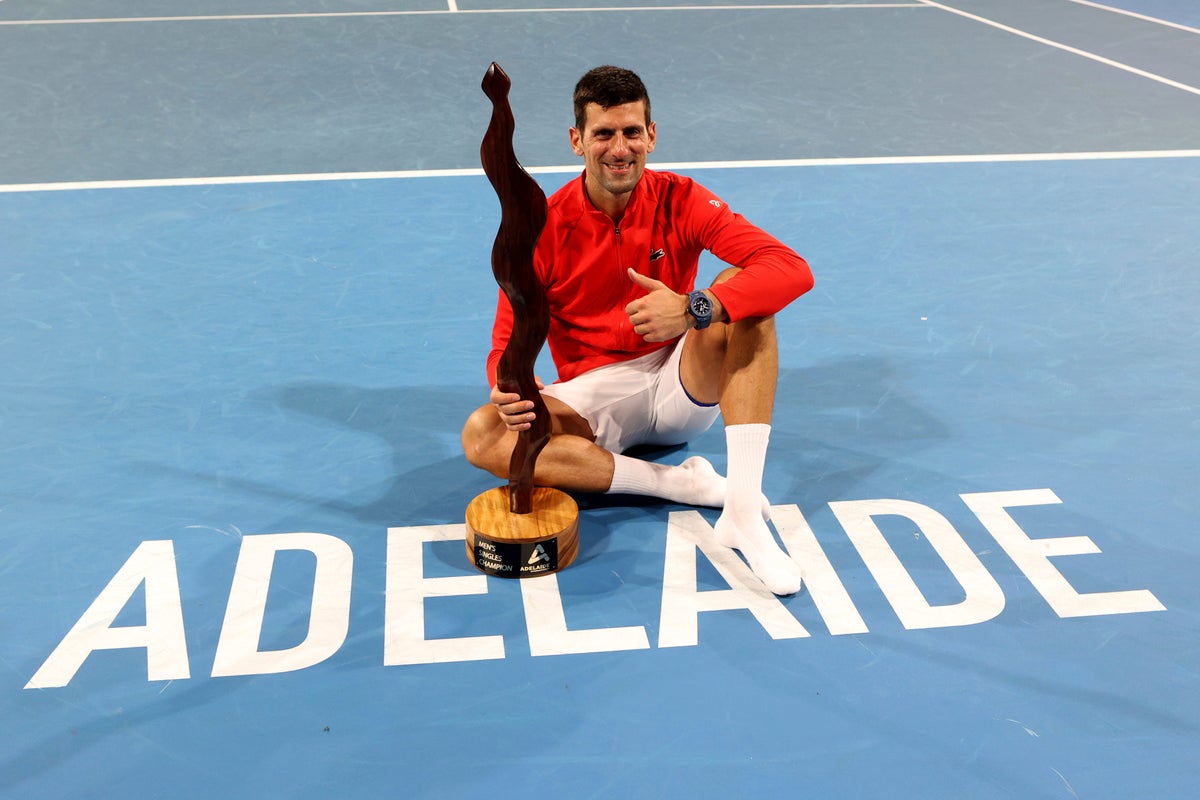
A year ago Novak Djokovic was departing Australia accompanied by border guards after one of the most remarkable sporting stories of the decade.
At the time it appeared his deportation, the result of Australia’s then immigration minister deciding Djokovic’s opposition to having the Covid-19 vaccine made him a threat to public health, could leave long-lasting scars.
But 12 months on it is almost possible to forget it even happened.
The country’s new government took a different stance and overturned Djokovic’s automatic three-year ban from applying for a visa and it would be a major surprise if he does not leave the country this time accompanied by the Norman Brookes Challenge Cup.
The Serbian may be 35 but a devotion to looking after his body – the motivation, misguided or not, behind his vaccine hesitancy – means he shows no real signs of physical deterioration and he is as relentless on court as ever.
He finished last season by beating most of his main rivals to win the ATP Finals and began this campaign in perfect fashion with a title in Adelaide.
Djokovic insists he bears no grudges, and his supporters flocked to Adelaide to give him an enthusiastic welcome back, but one unknown will be how he is received by the broader spectrum of fans that head to Melbourne Park.
One thing that is not in doubt is his formidable record in Australia. He is bidding for a record-extending 10th Australian Open title and has not lost a match Down Under since 2018, when elbow problems contributed to a shock defeat against Chung Hyeon.
Should Djokovic lift the trophy, he would again draw level at the top of the all-time men’s charts with Rafael Nadal, who capitalised on his rival’s absence last year to win the most unexpected of his 22 grand-slam titles.
Having feared a chronic foot problem might spell the end of his career, the Spaniard instead battled through a series of difficult matches to end a 13-year wait for a second Melbourne Park title, coming from two sets down to beat Daniil Medvedev in a final lasting more than five hours.
Nadal added yet another French Open crown in June but at 36 it seems time may be catching up with him and he goes into the tournament having lost six of his last seven matches.
Djokovic became an even heavier favourite when world number one Carlos Alcaraz, winner of the US Open, pulled out last week because of a leg injury, and victory would see the Serbian restored to the top of the rankings – a position it would be hard to argue he does not merit.
Aside from Nadal, Djokovic’s biggest challengers are likely to be familiar faces such as Medvedev, Stefanos Tsitsipas and Casper Ruud, while Danish teenager Holger Rune, the last man to beat Djokovic in the final of the Paris Masters in November, offers the most intriguing prospect.
Cameron Norrie will fully believe he can be among those names, and the British number one has made a brilliant start to the season, with his three victories at the United Cup including his first against Nadal.
Norrie is one of four British men in the top 50 along with Dan Evans, Andy Murray and 21-year-old Jack Draper, who is very much one to watch and will try to upset Nadal in the first round.
Emma Raducanu was hoping for a more positive start to 2023 after the travails of last year and put in a lot of physical work over the off-season only for a rolled ankle in Auckland last week to put her participation in doubt.
The absence of reigning champion Ashleigh Barty, who recently announced she is expecting her first child after her shock retirement last March, will be felt keenly in the women’s draw.
World number one Iga Swiatek is a hot favourite but remains eminently beatable on hard courts and the likes of Ons Jabeur, Jessica Pegula, Aryna Sabalenka, Caroline Garcia and Coco Gauff will all hope to be in the mix.







